Animals Come Together
Interesting collective nouns for animal groups
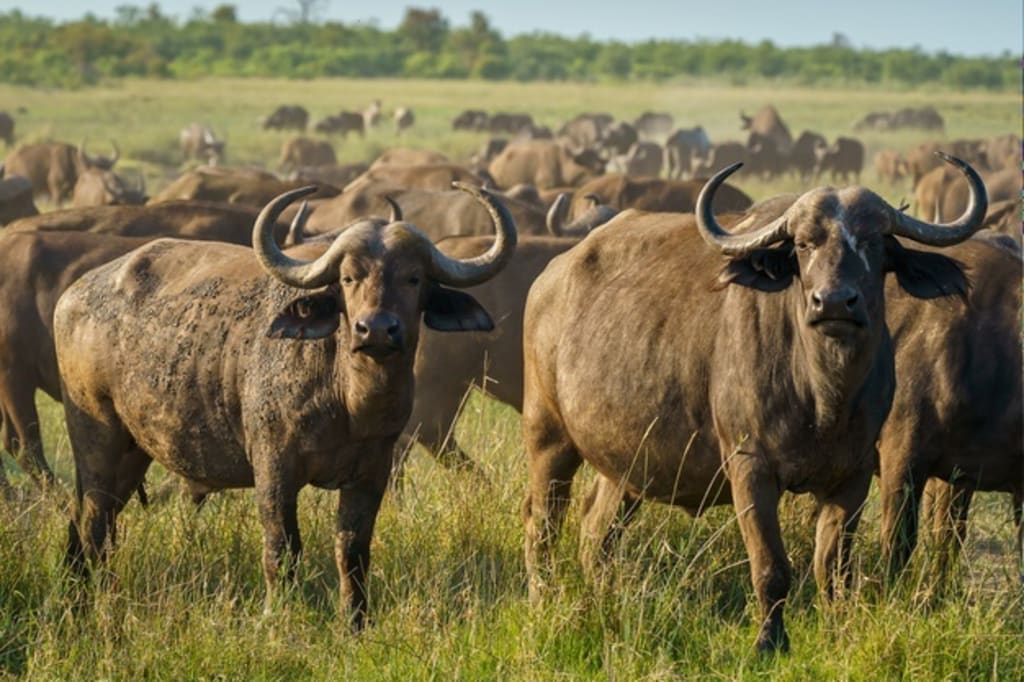
Obstinant Buffalo
If you would try to get a large number of buffalo to do something they do not wish to do you would discover that buffalo are obstinant. A fact you might not know is that both bison and buffalo in North America are referred to under the term American bison. This is because buffalo can only be found in South Asia and Africa.
Since prehistoric times bison have lived in Yellowstone National Park in Wyoming, Montana, and Idaho. So when a large group comes together they do so of their own free will and are an obstinacy.
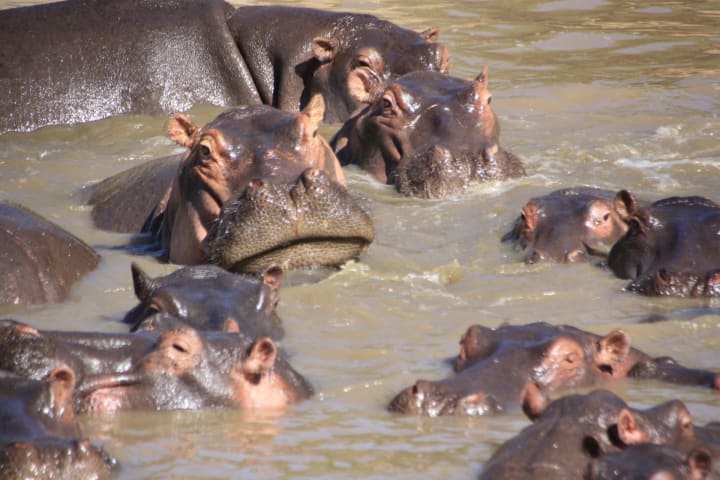
Bloated Hippopotamuses
Hippos like to live in groups or bloats that include from 10 to 30 animals. The bloat is led by a dominant male hippo. The term bloat means "to become swollen with fluid or gas." Groups of hippos were named bloats since they have bodies that look like they are bloated.
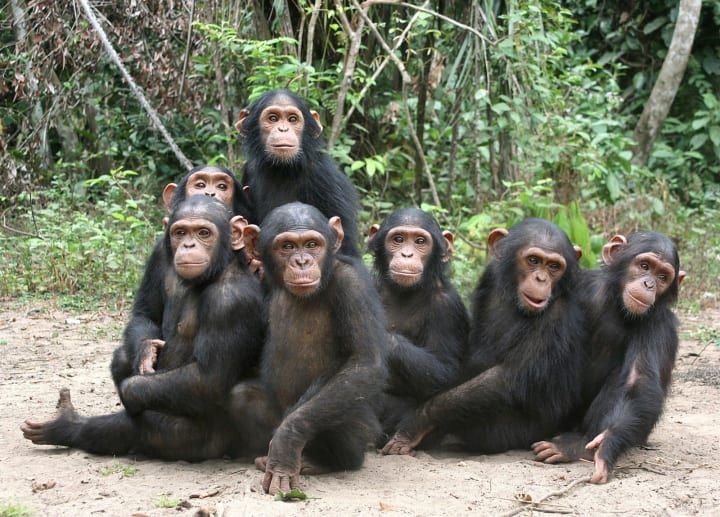
Apes Are Shrewd
The term shrewd means astute or clever. It has been used as a term for a group of apes or shrewdness of apes. Apes usually do have all kinds of shrewd ways to get what they want and the food they need. It is also known that apes have amazing cognitive abilities and are quite intelligent.
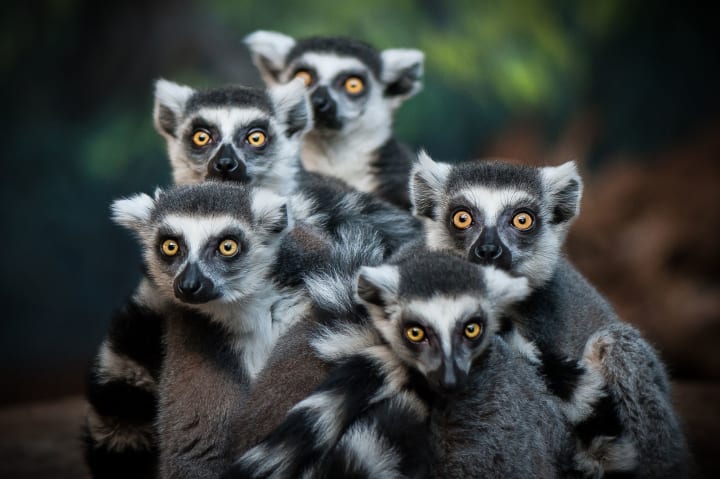
The Lemur Conspiracy
Those cute, small, long-tailed primates known as lemurs that live in trees on the island of Madagascar form communities of a few to 25 lemurs and together they are a conspiracy. What these animals conspire to do is give each other a warming signal so that other members can know when there is danger. The lemurs that conspire together against predators have their own special technique known as mobbing. This means that when a predator is near the entire group of lemurs attacks.
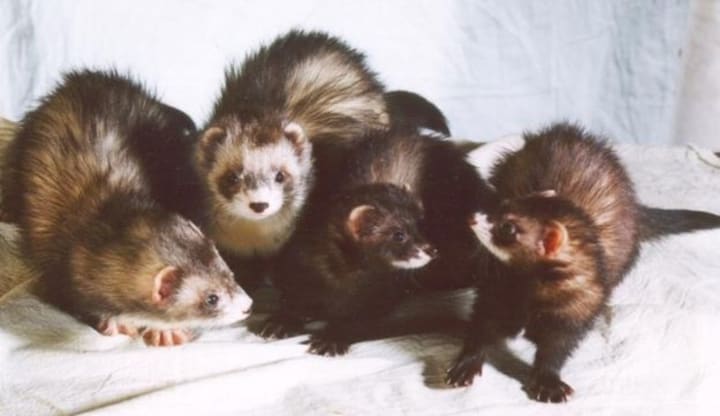
Ferrets Do Business
To have a better understanding of why a group of ferrets are called a business we have to look into the history of the word itself. In Old English the term was bisignes and it meant anxiety and bisig meant occupied. During the day ferrets sleep for 14 -18 hours and are active at dawn and dusk. When these animals get excited they do a "weasel war dance" making them look rather anxious which explains why a group of ferrets is a business.
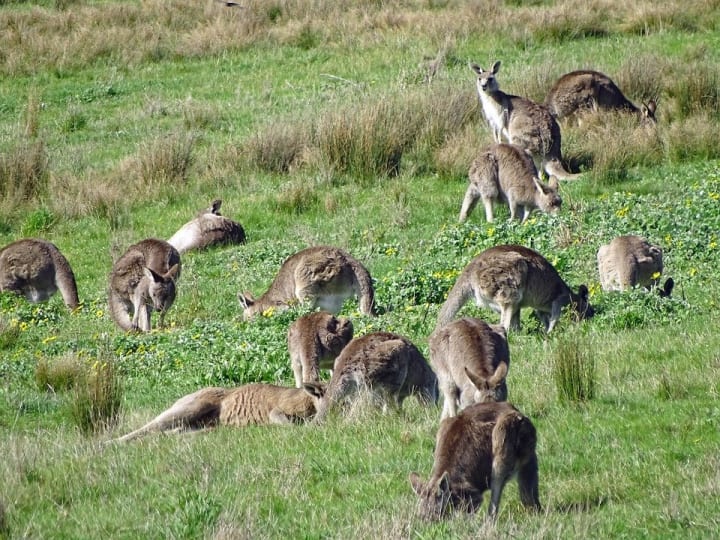
Kangaroos In a Mob
A large crowd of people can be referred to as a mob. Kangaroos tend to live in large groups anywhere from 10 to more than 100 kangaroos so these groups are known as mobs. The purpose of a kangaroo mob is to protect the weaker and younger members. An interesting fact is that the word kangaroo derives from the word gangurru which is what the Australian Aboriginal Guugu Yimithirr tribe called a gray kangaroo.
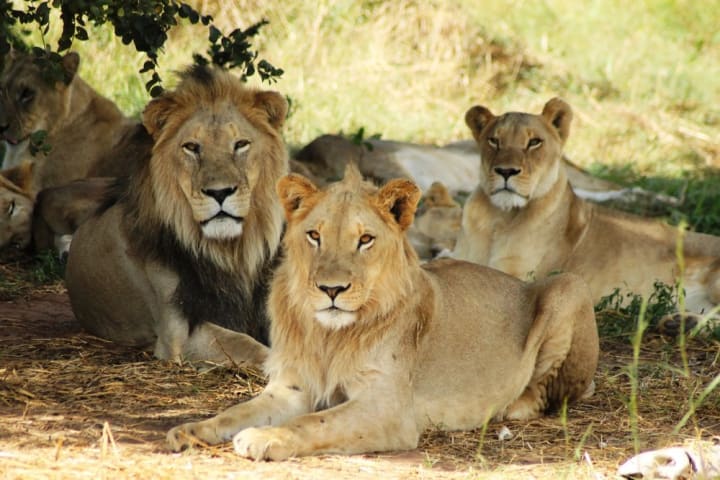
Lions Have Pride
A group of lions is referred to as a pride and it very well describes these majestic animals. While male lions with their manes look majestic, female lions often look proud of who they are and together in a group they sure could be said to have pride.
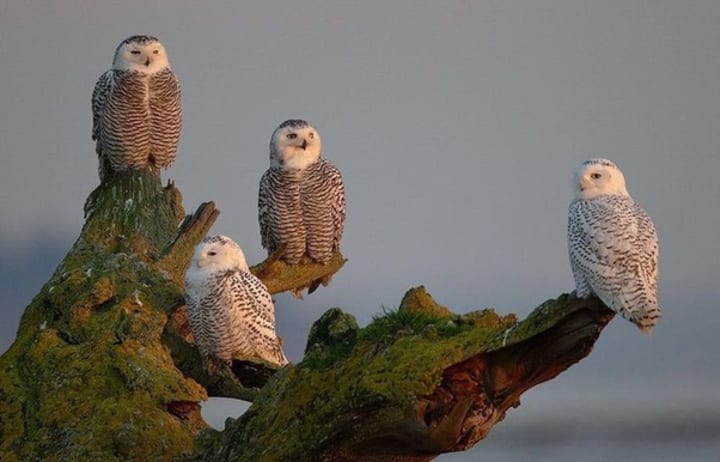
Owls In Parliament
Owls were a symbol of higher wisdom and associated with Athena the ancient Greek, Goddess of Wisdom and Strategy. Owls do not congregate in large groups but in smaller numbers so therefore they are considered special and referred to as a parliament or congress.
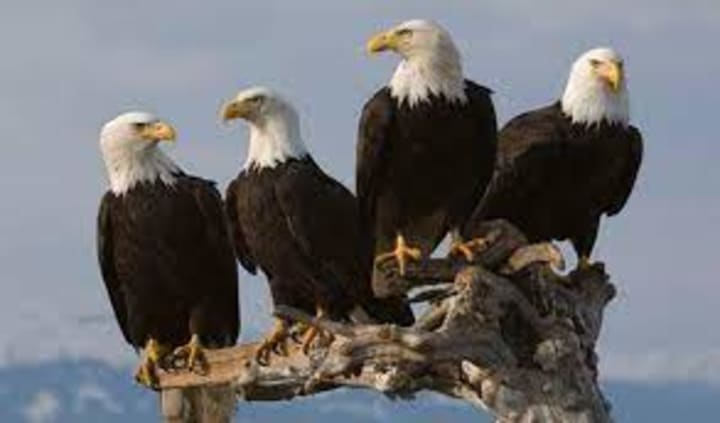
Eagles Convocate
Convocation is a word that means "a large, formal assembly of people." Typically referring to an important gathering it was thought that eagles, birds that are a symbol of the US should be referred to as gathering formally or a convocation of eagles.
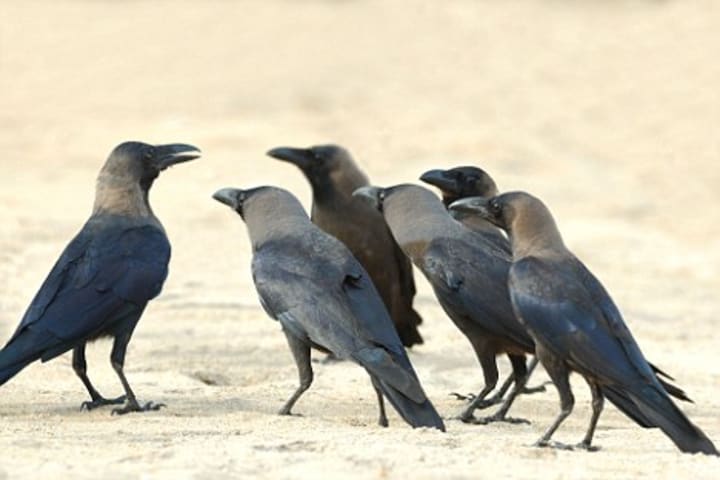
Unkind Ravens
A group of those big black birds known as ravens are called an unkindness. Even though for ages ravens have gotten along with humans many people do consider them to be pests. Unfortunately. ravens do harm to crops and livestock. If anyone would get too close to a raven's nest they would attack to protect their young. Ravens have a reputation for being the smartest of all birds. They can solve the complicated problems that scientists invent but despite this, they are looked upon as bad omens due to the fact that they are carrion birds associated with death and lost souls.
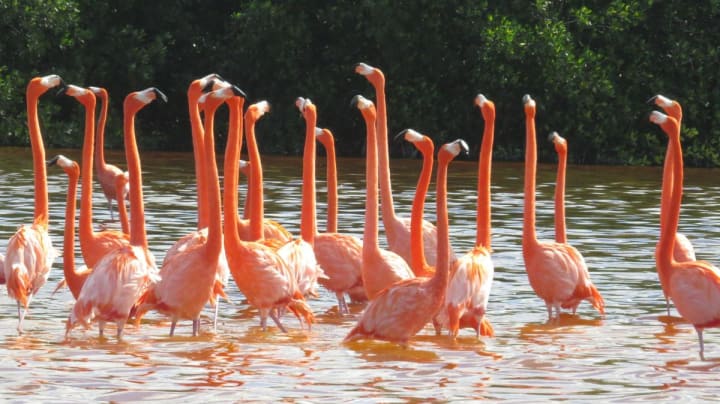
Flamboyance of Flamingos
I love seeing flamingoes with their incredibly long legs and all those pink feathers. A flock of flamingos is known as a flamboyance. The word flamboyance means "strikingly bold or showy" This is a great way to describe flamingos because these birds range in color from light pink to bright red and they certainly are showy.
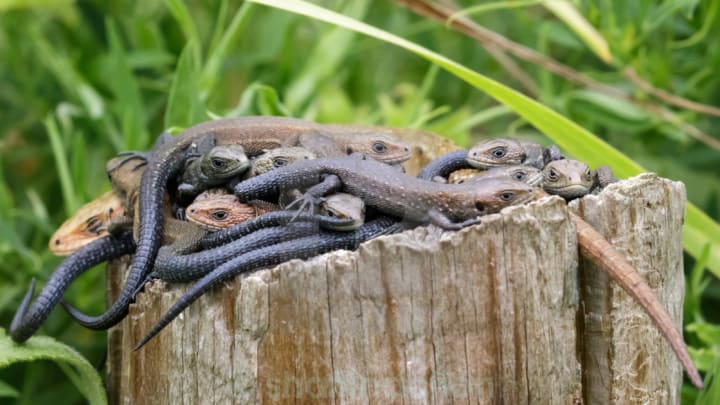
Lounge Lizards
A group of lizards is called a lounge or a lounge of lizards. This perhaps has to do with one of the lizards' favorite activities which is to lounge around in the sun. The term was coined in the early 1900s and is a slang term for a well-dressed man who likes to spend his time in bars, cafes, and hotel lounges to see if he can seduce wealthy women.
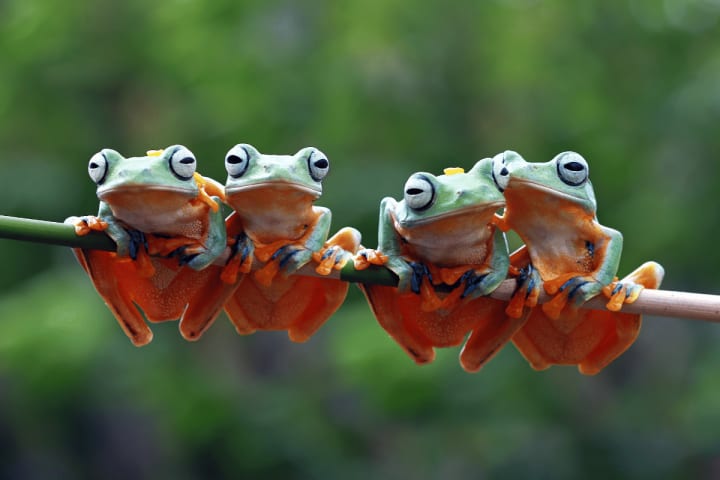
An Army Of Frogs
A group of frogs are referred to as an army, colony, or knot. Young frogs have a tendency to swim together in schools similar to fish. With many of them hopping about this way and that it could look like an army about to attack.
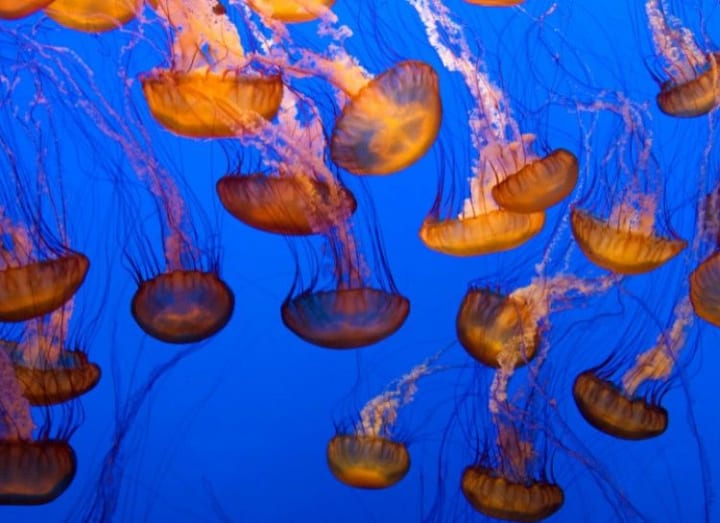
Smack a Jellyfish
I know you want to know why you should smack a jellyfish? Well, this is just a play on words. You know what a smack is and it can be a light tap, slap or blow with the palm of a hand. When it comes to jellyfish a smack is a group of jellyfish. Other collective nouns for them are bloom or swarm. Smacks of jellyfish can be found in shallow or deeper ocean waters. At times you have to be careful because jellyfish can beach and then if you do not notice them they'll smack your foot with their venomous and painful sting.
About the Creator
Rasma Raisters
My passions are writing and creating poetry. I write for several sites online and have four themed blogs on Wordpress. Please follow me on Twitter.



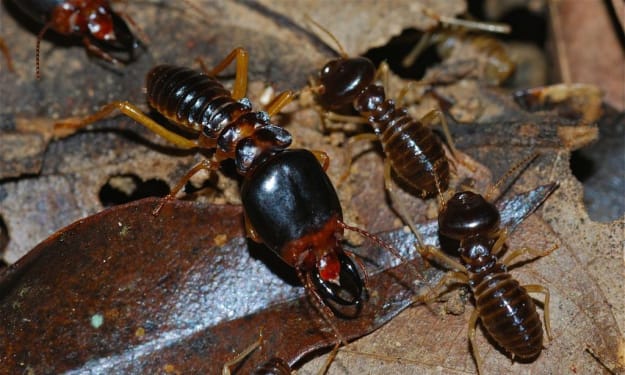
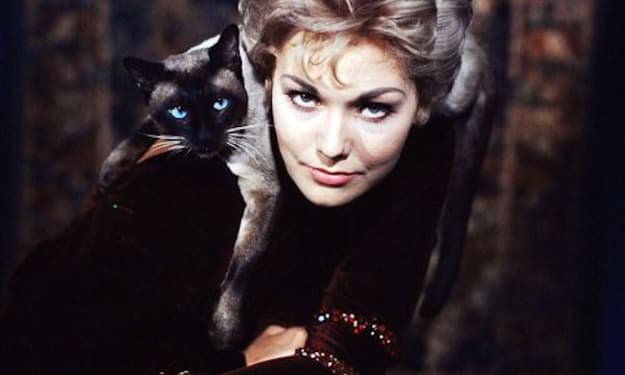

Comments
There are no comments for this story
Be the first to respond and start the conversation.